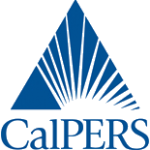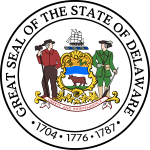The Sustainable Development Goals (SDGs) were adopted by 193 nation-members of the United Nations General Assembly in September 2015. There are 17 goals and 169 “subsets” or targets.

To achieve the goals over time (out to the 2030 target date), collaboration among investors, companies, governments, the UN system, other multilateral organizations, civil society, indigenous peoples, academics, scientists, and other players is critical.
The SDGs provide a valuable global framework to guide company strategies, actions, and collaborations with stakeholders, such as governments, other companies, trade & business associations, NGOs, and other organizations.
 Walden Asset Management — a leading (and long-time) Sustainable & Responsible Investing player — recently prepared a paper: “SDGs: Walden’s Framework for Incorporation and Advancement” – authored by Senior ESG Analyst Carly Greenberg.
Walden Asset Management — a leading (and long-time) Sustainable & Responsible Investing player — recently prepared a paper: “SDGs: Walden’s Framework for Incorporation and Advancement” – authored by Senior ESG Analyst Carly Greenberg.
The paper can serve as a helpful resource for corporate managers adopting one or more of the SDGs. We present the highlights for you in this brief.
Why are the SDGs important to asset management firms and their clients?
Walden Asset Management and the Importance of the SDGs
Walden sees the SDGs as important in addressing global efforts to end poverty; reduce inequality; protect the natural environment; and pursue peace and stability. Walden also believes achievement of these goals will be good for the global economy and their client’s investments.
In the investment decision-making process, Walden sees the SDGs as being consistent with the view that ESG factors can have a material impact on a company’s financial performance. Walden also believes that every goal is relevant in some way to the investment process. This is because every goal represents a risk or opportunity that could affect long-term shareholder value.
On a macro level, the SDGs identify global systemic risk factors and prompt investors and companies to evaluate how they contribute solutions to the risks or are in some way aggravating the risk. On the micro level, the SDGs help to supplement the assessment of financial materiality in the investment process.
Examples of how the goals augment investment decision-making:
Social License / Freedom to Operate
“Water” is the theme of Goal #6 – Clean Water and Sanitation. Understanding societal demand for water in circumstances where water for drinking or for sanitation may collide with corporate interest can provide an early warning for a company’s license to operate (a clear risk for investors). Coca-Cola is a “noteworthy” example, says Walden. The company had to close a bottling factory in Northern India after allegedly extracting groundwater above legal limits while local citizens had inadequate access to fresh water.
Risk Reduction
Goal #11 is Sustainable Cities & Communities; sub-target 11-C provides important risk reduction guidance for companies. “…support least developed countries in building sustainable and resilient buildings…”
The well-publicized example of recent years was the collapse of the 8-story Rana Plaza Building in Bangladesh, killing more than 1,000 garment factory workers. Prominent U.S. and European brand marketers had hits on their reputations as firms such as “Primark” and “Wal-Mart” became prominent mentions in news reports.
Operational Efficiency
SDG Goal #13 and Goal #7 are related, calling for climate action and providing affordable and clean energy, and appeal to advocates for a “global low-carbon economy”.
Walden sees companies embracing these calls to action as having a head-start in dealing with the [expected] increase in regulation with lower compliance costs for the company and more strategic capital expenditures made over a longer period of time.
Global government will result in new opportunities for “cleaner” companies. Cost savings is an important factor in all of this for investors.
Competitive Positioning
Goal #8 is “Decent Work and Economic Growth,” which is seen as a possibility for companies to focus more on building and sustaining high-trust, high-performing cultures, with less turnover, more appeal to recruiting targets, and more customer satisfaction.
Pay equity is a part of this discussion; in the U.S., Walden notes, the differentials in compensation between ethnic groups and gender is “well documented”; the issues of “fair compensation” and “equal pay for equal work” are increasingly the subject of media reports and discussions between SRI investors and company managements.
Google and Facebook are addressing the issues; eliminating the wage gap will help companies better compete for talent – and that benefits investors and stakeholders.
New Market Opportunities
Goal #12 is “Responsible Consumption and Production”; investors can support the SDGs by seeking out companies that have products or services that directly address one or more of the SDGs. Citing the Business and Sustainable Development Commission, there is $12 trillion in value to unlock in economic opportunities.
Inherent in the SDG framework, Walden points out in the Guide, SDG 12 / subtarget 12.2 calls for the efficient use of natural materials; subtarget 12.5 aims at reducing waste through preventable means (recycling, reduction, reuse). As example, IPG Photonics produces high-power fiber laser systems that help reduce waste compared to traditional welding in manufacturing.
What are the opportunities to “advance the mission” of the goals?
When the SDGs were launched in 2015, Walden found that it was already engaging with companies on 11 of the 17 goals. Walden prioritizes “active owner” engagement on a subset of the goals to maximize its impact. These are:
- Gender Equality (Goal 5);
- Reduced Inequalities (Goal 10);
- Climate Action (Goal 13);
- and Peace, Justice and Strong Institutions (Goal 16).
“We believe the SDGs are aligned with our mission to help our [investment] clients achieve both financial growth and social and environmental impact. We will continue to incorporate the SDGs into our work and advance the objectives of the Goals through investment decision-making and active ownership” says Walden.
Walden was founded in 1975 and is one of the oldest of the now-large field of sustainable and responsible investing managers. It is the SRI practice unit of Boston Trust & Investment Management. The parent has $8 billion AUM; Walden, $3 billion AUM.
Walden was the first mutual fund with anti-Apartheid criteria (1982) and was a Founding Member of Ceres in 1989.
Walden is a signatory of the UN Principles for Responsible Investment (PRI); is active in the UN PRI Advisory Committee on the SDGs; is the first US-based signatory of the Stockholm Declaration, which communicates investor support for the SDGs; and, is a member organization of the influential US Forum on Sustainable & Responsible Investing (SIF).
In 1999, it began managing a fossil-free investment portfolio. The team also led the effort to have “Say on Pay” mandated by the SEC.
In 2016 and 2017, Walden led the initiative to encourage large asset managers to address ESG issues in proxy voting (Fidelity, Vanguard, etc.)
Report author Carly Greenberg, CFA, is responsible for assessing the ESG performance of current and potential portfolio companies. She completed a term as President of the Boston Chapter of BASIC (“Building a Sustainable Investment Community”).
There is more information for you at:
http://waldenassetmgmt.com/wp-content/uploads/2017/12/Walden-Framework-for-the-SDGs-Dec-2017.pdf
G&A Institute Perspectives
“Socially Responsible Investing” was the early identification for companies like Walden Asset Management in addressing what are now ESG factors. Over time, this became “Sustainable & Responsible Investing,” and more recently added for the “I”, Impact Investing.
Walden is a traditional bellwether on ESG issues. Early on, the team will identify issues to raise with companies – through engagement and/or through proxy voting campaigns – that over time evolve into mainstream investment community conversations and actions.
The trade association for Walden and other “SRI” asset owners and management firms and investment advisors is the Forum for Sustainable and Responsible Investment (US SIF). Members include mutual fund companies, community investing organizations, not-for-profits, pension funds, foundations, asset owners, and service and support organizations.
G&A Institute is a member organization. EVP Louis Coppola is co-chair of the US SIF’s Company Calls Committee (CCC), which organizes “road show” meetings with corporate management and SIF members.
Every-other-year, SIF coordinates a comprehensive survey to determine the level of Assets Under Management that are SRI-based. The 2016 survey (“Report on US Sustainable, Responsible and Impact Investing Trends”) revealed the demand is continuing to grow, with $8.72 trillion of professionally managed assets – a 33% growth since the 2014 survey.
Demand is fueled by investor concerns and interest in climate change; weapons production; human rights; corporate political spending and lobbying; and, results in launch of services and products for asset owners and managers.
The SIF report noted the dramatic growth in services for investors that issue ratings, rankings, scores, and other “recognitions” of progress (or lack of) in the corporate sustainability journey.
The report is available at: https://www.ussif.org/files/SIF_Trends_16_Executive_Summary(1).pdf
G&A team members help corporate investor relations managers in achieving a better understanding the dramatic growth in SRI — and investor interest in corporate ESG performance and strategies.
We arrange meetings for IR and other managers with sustainable & responsible investment professionals.
G&A has developed proprietary analytics and research resources to assist corporate managers in responding to third party requests for data and information (such as by CDP, RobecoSAM, Sustainalytics, Institutional Shareholder Services, and other players). These resources are used to help corporate clients identify gaps, and better leverage existing data and information to respond to these service providers that are advising asset owner and managers on corporate performance in the ESG categories.
Important:
Watch for news of results of a comprehensive research report on corporate sustainability reporting and adoption of SDG by public companies – coming in 1st Quarter 2018.
For more information, contact Lou Coppola at: lcoppola@ga-institute.com
If you are interesting in learning more about the work of Governance & Accountability Institute and its portfolio of resources, tools and service offerings, please click here





